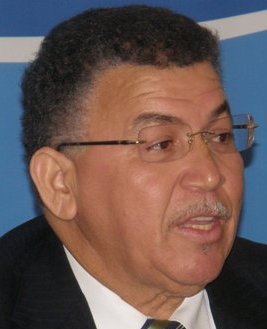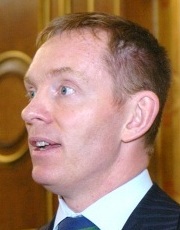Archive for September 16th, 2009

Woman robbed at knife point
(CNS): Cayman’s crime wave continued this week when a female Beach Bay resident woke up to find a man with a knife in her apartment on Monday morning demanding to know where her handbag was. Police in Bodden Town are appealing for sightings of the man who entered her condo on Beach Bay Road in the early morning. The man is described as approximately 5ft 8ins tall with a dark complexion and wearing a black baseball cap and dark bandanna with a white pattern on it over his face. He was also wearing a white T-shirt and blue jeans pants.
The woman who was unhurt called the 911 Emergency Communications Centre received at 6.40am to report the incident. She told police that when the robber asked where her bag was she told him to take the computer at that point she said he left the condo with a digital camera and an iPod Nano. She later discovered that the knife the robber had been holding was also from her kitchen.
Officers say they would like to hear from anyone who was in the area at the time of the offence who saw a man matching this description or anyone who recognises the description given. Police can also confirm that the red iPod Nano is a rare model and anyone with information about its whereabouts should contact police.
Anyone who can help should contact PC Bin Malcolm on 925-3076 or CrimeStoppers on 800-8477 (TIPS). All persons calling Crime Stoppers remain anonymous, and are eligible for a reward of up to $1000, should their information lead to an arrest or recovery of property/drugs.

Two released in murder case
 (CNS): One man remains in police custody in connection with the fatal shooting of 35-year-old Carlo Webster but the other two people who were arrested in the course of investigations have been released on police bail, the RCIPS said Wednesday afternoon. Webster was shot inside the Next Level nightclub at exactly 1.30am on Thursday, 10 September. It is thought there were around 150 people in the club at the time of the shooting and police say that while they have talked to some who were there, they need those who actually saw the shooting to come forward.
(CNS): One man remains in police custody in connection with the fatal shooting of 35-year-old Carlo Webster but the other two people who were arrested in the course of investigations have been released on police bail, the RCIPS said Wednesday afternoon. Webster was shot inside the Next Level nightclub at exactly 1.30am on Thursday, 10 September. It is thought there were around 150 people in the club at the time of the shooting and police say that while they have talked to some who were there, they need those who actually saw the shooting to come forward.
A second man who sustained a gun shot wound to his stomach was treated at hospital and has been released. It’s not felt that he was a target, say police, but that it appears likely he was a bystander who got caught up.
“We have received a lot of information from the public but there are witnesses who were present who have not come forward,” said Senior Investigating Officer, Chief Inspector Peter Kennett. “Clearly, we need to speak to everyone that witnessed the shooting but also to anyone who saw the murderer leaving the club, who would have no doubt been carrying a gun.”
A post mortem has shown that Carlo Webster suffered three gunshot wounds. The RCIPS sends its condolences to Carlo’s family and have a Family Liaison Officer working with relatives.
Noting that two people who were arrested in connection with the shooting have been released on police bail, Kennett said, “Police use powers of arrest for various reasons and doing so does not automatically mean charges will be forthcoming. In any enquiry there are people that need to be questioned so detectives can ascertain certain information about their involvement. A decision can then be made, within the law, about what should happen to that person. This could result in a release without charge, being released on police bail or being charged.”
Anyone with information about the shooting can pass it on to police in a number of ways; people can speak with an officer they know and trust, they can reach George Town detectives on 949-4222, they can leave information on an anonymous voicemail service by calling 949-7777 or they can call Crime Stoppers on 800-8477 (TIPS). All persons calling Crime Stoppers remain anonymous, and are eligible for a reward of up to $1000, should their information lead to an arrest or recovery of property/drugs.

Dutch Antilles & Aruba meet white list TIEA quota
(tax-news.com): The Nordic countries – consisting of Denmark, Finland, Iceland, Norway and Sweden, and the associated territories the Faroe Islands, Greenland and Åland – on September 11 signed tax information exchange agreements (TIEAs) with Aruba and the Netherlands Antilles. The new agreements are ‘part of a campaign led by the Nordic Council of Ministers to encourage greater efforts to prevent international tax evasion’, according to Norden. Norden states that ‘the TIEAs will provide the tax authorities with access to all information about citizens who try to avoid paying tax on income and capital investments and who have undeclared assets in their home countries.

Barclays sells $12bn of risky assets to Cayman fund
 (The Guardian): Barclays is spinning off $12.3bn (£7.47bn) of troublesome assets to a fund based in the Cayman Islands and run by two senior former employees of its Barclays Capital investment management arm. The bank is lending Protium, the newly created fund, $12.6bn to finance the deal, which is also being financed with $450m from the fund’s partners. Protium, which is registered in the Cayman Islands, will be managed by C12 Capital Management, run by two high-profile Barclays Capital staff, Stephen King and Michael Keeley, who will now both leave the bank. C12 Capital Management, based in New York.
(The Guardian): Barclays is spinning off $12.3bn (£7.47bn) of troublesome assets to a fund based in the Cayman Islands and run by two senior former employees of its Barclays Capital investment management arm. The bank is lending Protium, the newly created fund, $12.6bn to finance the deal, which is also being financed with $450m from the fund’s partners. Protium, which is registered in the Cayman Islands, will be managed by C12 Capital Management, run by two high-profile Barclays Capital staff, Stephen King and Michael Keeley, who will now both leave the bank. C12 Capital Management, based in New York.
Travers hits back at British press
(CNS): The chair of the Cayman Islands Financial Services Association, Anthony Travers is back in battle with the UK papers as part of his campaign to set the record straight whenever Cayman is publically maligned. This time Travers has written a rebuttal to The Guardian concerning its article published this weekend that suggested the UK government may have to “bail out” dependent territories such as the Cayman Islands. Travers wrote that the constant scapegoating of Cayman was to divert attention from the UK’s own inept fiscal mismanagement. Moreover, Travers points out that Cayman is in no need of any financial assistance form the UK.
“Despite this current propaganda war being waged by ill-informed factions within the UK and US governments, I don’t remember any reluctance on their part during the recent cataclysmic financial downturn to beg Cayman for assistance in diverting trillions of dollars to their ailing US and UK economies,” Travers writes.
In his letter the CIFSA Chair states that Cayman has sourced its own borrowing from banks based on triple A credit rating and points out the sum the Cayman Islands Government needs to borrow is equivalent to less than half a day’s current overspend by the UK government.
“If we wanted lectures on how to manage our economy, the FCO would be the last body on earth we would approach,” the letter states.
Travers notes that as the UK government prepares to bring in a 50% top rate of tax and the British consumer is “crippled by further extortionate taxes on fuel, stamp duty, inheritance tax, airline charges, alcohol and a myriad of others,” he asks what kind of morality is it when a government takes more than half of what their citizens earn in taxation.
He also illustrates the stability of Cayman in the face of the economic melt down. “No banks or institutions went bust in The Cayman Islands. No bailouts were necessary. Unlike future generations in the UK and US, our citizens will not be faced with what has become known as "intergenerational taxpaying," he writes.
He also applauds the CI government for having the courage to propose a 2% cut in public sector pay. “What chance of Messrs Brown and Darling grasping that nettle?” Travers asks.

Cayman waits on UK decision

 (CNS): McKeeva Bush is currently in London meeting with FCO officials in a bid to secure approval for borrowing to help balance the 2009/10 budget and deal with government’s immediate financial problems. At this point it is not clear exactly what measures Bush will be presenting to the OT minister, Chris Bryant, following his letter advising the UDP government to implement some form of direct taxation, which has been rejected.
(CNS): McKeeva Bush is currently in London meeting with FCO officials in a bid to secure approval for borrowing to help balance the 2009/10 budget and deal with government’s immediate financial problems. At this point it is not clear exactly what measures Bush will be presenting to the OT minister, Chris Bryant, following his letter advising the UDP government to implement some form of direct taxation, which has been rejected.
Although Leader of Government Business McKeeva Bush has told the Cayman people about his long term measure to stimulate Cayman’s local economy through asset sell-offs and private finance initiatives, no firm measures have been announced to the Cayman public that will make any significant cuts in expenditure or raise revenue in the short term, since the pension suspension was frozen. Bush is expected to meet with Foreign and Commonwealth Office (FCO) economists before presenting his intentions to address the deficit to Bryant. Although Cayman has raised the necessary $372 million government needs to get through this financial year on the private markets, it cannot access that cash until Bryant gives the go ahead because the country has exceeded the borrowing limits set out by the Public Management and Finance Law.
Although Bush is presenting his proposed budget to the OT minister this week, he said he intends to present the full budget to the Cayman people next week in the Legislative Assembly. At this stage, however, it is not clear exactlywhich of the myriad proposals for new taxes or fee increases he will adopt. Nor has the LoGB stated what plans are in place if Bryant refuses to permit the borrowing without a firm commitment to introduce direct taxation, though he has said he is confident the UK will approve his plans.
In an interview with Reuters this weekend Bush listed a number of potential revenue raising measures, but officials from the UDP camp said yesterday that none of them were necessarily going to be implemented and were just merely “ideas that had been discussed”.
Bush spoke of a 2 percent increase in import duties and the introduction of a community service fee, which he said would be a fixed fee for all Cayman Islands residents, based on their ability to pay.
"Everyone working in Cayman is going to have to contribute," Bush told Reuters. He did not say how much or how the fee would be collected, or how it would be calculated to be fair to low paid workers. He spoke of eliminating garbage fees but imposing other new fees, as well as increasing some of the existing consumer taxes. Bush said a fee would be introduce to register trademarks and patents, and fees for passports, planning applications and nightclub licenses would be raised.
Although Caymanians are still in the dark over exactly what extra fees they will need to pay this year to pay for government expenditure, Bush acknowledged that Cayman needs to expand its revenue base. "I believe the UK is being realistic,” he said. “We do not have a manufacturing base or natural resources. If we don’t have a sustainable revenue base, we are putting ourselves in jeopardy."
What that sustainable revenue base will be is still the key question that Caymanians are waiting to find out. Moreover, it is the key to securing the desperately needed funds to ensure that government can meet its financial commitments for September, including the civil service payroll.
A Guardian article this weekend revealed that the UK has some serious concerns about the financial stability of its territories, the details of which are contained in the long awaited report by Michael Foot. The report suggests the government may need to make provisions for the financial failure of what Foot terms British tax havens. The concern is that if the dependent territories fail they could turn to the illegal drugs trade. Foot’s report is understood to recommend that the territories boost their revenue through direct taxation.

Banana sex cult leader splits
 (Courier Mail): Papua New Guinea police are hunting the leader of a sex cult who promised villagers a bumper banana harvest if they engaged in public sex. The man and his followers fled naked into the wilderness when police tried to arrest them over the weekend, the Post Courier newspaper reported. The newspaper said the villagers in Morobe province, about 200km north of the capital Port Moresby, had been promised their banana harvest would increase 10-fold every time they had sex in public. Inspector Adam Busil said he and officers surrounded the man’s hut early Saturday but he refused to come out, then made a dash for freedom with about seven naked followers.
(Courier Mail): Papua New Guinea police are hunting the leader of a sex cult who promised villagers a bumper banana harvest if they engaged in public sex. The man and his followers fled naked into the wilderness when police tried to arrest them over the weekend, the Post Courier newspaper reported. The newspaper said the villagers in Morobe province, about 200km north of the capital Port Moresby, had been promised their banana harvest would increase 10-fold every time they had sex in public. Inspector Adam Busil said he and officers surrounded the man’s hut early Saturday but he refused to come out, then made a dash for freedom with about seven naked followers.

Obama names four Caribbean nations to drug list
 (CaribbeanWorldNews): President Barack Obama yesterday named four Caribbean nations to a major narcotics list. Under the Foreign Relations Authorization Act, the President is required to notify Congress of those countries he determines to be major illicit drug-producing countries or major drug-transit countries. The Bahamas, Jamaica, Haiti and the Dominican Republic were named to the 2009 list, along with 16 other countries – Bolivia, Brazil, Burma, Colombia, Ecuador, Guatemala, India, Laos, Mexico, Nigeria, Pakistan, Panama, Paraguay, Peru, and Venezuela.
(CaribbeanWorldNews): President Barack Obama yesterday named four Caribbean nations to a major narcotics list. Under the Foreign Relations Authorization Act, the President is required to notify Congress of those countries he determines to be major illicit drug-producing countries or major drug-transit countries. The Bahamas, Jamaica, Haiti and the Dominican Republic were named to the 2009 list, along with 16 other countries – Bolivia, Brazil, Burma, Colombia, Ecuador, Guatemala, India, Laos, Mexico, Nigeria, Pakistan, Panama, Paraguay, Peru, and Venezuela.

Showers might make you sick
 (BBC): Showering maybe bad for your health, say US scientists, who have shown that dirty shower heads can deliver a face full of harmful bacteria. Tests revealed nearly a third of devices harbour significant levels of a bug that causes lung disease. Levels of Mycobacterium avium were 100 times higher than those found in typical household water supplies. M. avium forms a biofilm that clings to the inside of the shower head, reports the National Academy of Science. If you are getting a face full of water when you first turn your shower on, that means you are probably getting a particularly high load of Mycobacterium avium, which may not be too healthy.
(BBC): Showering maybe bad for your health, say US scientists, who have shown that dirty shower heads can deliver a face full of harmful bacteria. Tests revealed nearly a third of devices harbour significant levels of a bug that causes lung disease. Levels of Mycobacterium avium were 100 times higher than those found in typical household water supplies. M. avium forms a biofilm that clings to the inside of the shower head, reports the National Academy of Science. If you are getting a face full of water when you first turn your shower on, that means you are probably getting a particularly high load of Mycobacterium avium, which may not be too healthy.
Pay cut to save just $2.5m
(CNS): According to officials in government, the proposed 2% pay-cut for civil servants is only likely to save the government around $2.5 million, a mere fraction of the $81 million deficit which government incurred last year. Further details on the cut were expected Tuesday (15 September) but by 7pm there was still no word. It is currently understood that all public sector workers earning more than CI$3000 will have their wage packets docked from next month until June 2010 and be given four days paid leave in exchange, an issue which Civil Service Association President James Watler (left) says is still in confusion. (Photo courtesy of News 27)
A number of questions remain regarding the imposition of the proposed salary cut and Watler has said he needs more clarity regarding the proposal before it can be taken to members. He said that the first announcement made on Friday was that the leave would be unpaid but that by Saturday the announcement was changed to paid leave, which he said would probably defeat the purpose but it is not entirely clear. He also said he had not been told how it would impact pension contributions or the legal implications with regards the terms and conditions of employment for public sector workers.
“Before we can discuss this with the membership we need some clarity and we have contacted the chief secretary for more information as we are still trying to understand the proposal; it doesn’t seem logical at the moment,” Watler told CNS, adding that there are concerns that the impact on staff for the amount of money generated for government by the move may not be worth it.
It is estimated that around 50% of the civil service will be affected, but there are already concerns that the negative impact on morale and workers’ personal circumstance will outweigh the small gain to government coffers.
“We have said all along that any kind of measures to reduce the government deficit should be in the interests of all concerned,” Watler added. He said that the announcement on Friday came before the proposal had been discussed with the membership and the CICSA was opposed to salary cuts that would harm members and not add significantly the government coffers. He said, however, that the association was not just being resistant and whatever government proposed would be put before the members for approval.
Watler observed that what seems to be happening at the moment is that just moments after discussions on possible proposals, public announcements are being made before anyone even knows the details or understands how they will impact the public sector.
Speaking on Rooster’s morning phone in show, Crosstalk, Ezzard Miller, independent MLA for North Side, said that he thought that as the move would not represent a substantial reduction in government expenditure it would not be ”worth the pain” to civil servants.
He said that government could raise that amount of revenue through an increase in traditional consumption tax. Miller also said that if it came to addressing civil service costs government should be looking at the PMFL and how much implementing that has cost government, and then repealing that law to reduce costs, which he believes has made government departments management heavy.